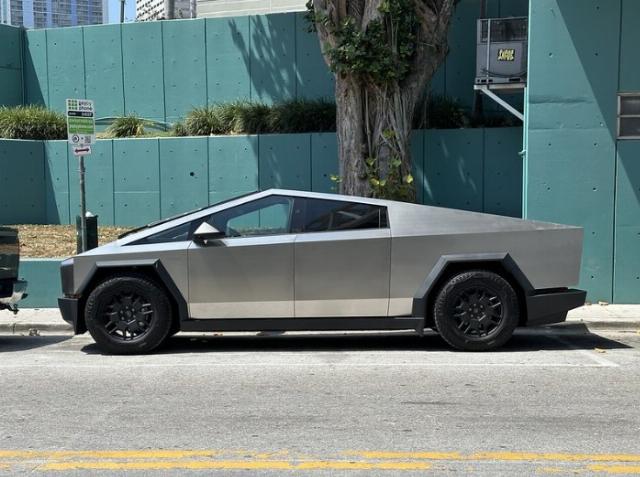Terror in Las Vegas: Bad symbolism, worse implications
The Tesla Cybertruck explosion outside the Trump International Hotel in Las Vegas is a chilling reminder that we live in a world where symbols matter — and where targeting them sends messages that are as deliberate as they are destructive.
Early reports suggest that this was no mere accident. Authorities have rightly characterized the incident as a potential act of terrorism, and until evidence suggests otherwise, it should be treated as such. The juxtaposition of a Tesla product and a hotel bearing Donald Trump’s name is unmistakable, and the symbolism is impossible to ignore.
This act — whatever its ultimate origins — is not random. The location, the vehicle, and the potential targets are a trifecta of meaning in our increasingly divided world. Whether this is an instance of domestic terrorism, foreign interference, or a hybrid manifestation of ideological rage remains to be decided. What we do know is that this attack speaks to an unsettling undercurrent of hostility directed at two of the most consequential figures in modern America: Elon Musk and Donald Trump.
A Collision of Icons
Elon Musk and Donald Trump are not merely individuals; they are institutions, symbols of influence that evoke admiration among conservatives and contempt from their detractors. Musk, the innovator, has reshaped industries and redefined technological ambition, recently becoming an influential figure in conservative circles due to his advocacy for free speech and government accountability. Trump, the disruptor, remains a lightning rod in American politics, embodying a brand of unapologetic populism that resonates deeply with conservatives.
During the last election cycle, Musk’s and Trump’s alignment on issues like efficiency and accountability underscored their shared commitment to challenging entrenched bureaucracies. To target a product created by Musk outside a hotel branded by Trump is to strike at two pillars of modern American identity and the ideals they stand for. This was no accident; it was a calculated act of defiance against the ideologies and achievements these men represent.
Terrorism Until Proven Otherwise
To call this act anything less than terrorism is to ignore the clear indicators. An explosion of this magnitude, targeting such a high-profile location, demands a presumption of malice. The term “terrorism” carries weight, but it also carries clarity. It proves the seriousness of the act and the necessity of treating it as a deliberate threat to the fabric of our society.
The timing, too, is worth noting. The New Orleans Bourbon Street attack is a fresh wound in the nation’s collective memory. These attacks occurred on the same day — the start of a new year — and in high-profile tourist locations, amplifying their impact and the questions surrounding their intent.
There is no public evidence linking the two incidents (yet), but the parallels are difficult to dismiss. In both cases, we see acts designed to create fear and uncertainty, aimed at symbolic targets that resonate deeply with their respective audiences.
Domestic, Foreign, or Both?
The question of who is responsible looms large. Is this the work of a domestic actor, inflamed by political or ideological rage? Is it a foreign entity, seeking to sow chaos and division in the heart of the United States? Or is it a hybrid — a convergence of domestic and international forces exploiting shared grievances to amplify their impact?
A domestic connection exposes the deep fractures in our own society, where political polarization has reached a fever pitch. A foreign connection shows a coordinated effort to destabilize the United States by attacking its cultural and ideological icons. A hybrid operation embodies the unsettling reality of a world where global and local threats intertwine with ease.
A Message to the Nation
Whatever the origins, the intent behind this explosion is clear: to intimidate, to provoke, and to destabilize. It is a message aimed not just at Musk and Trump, but at the values they represent. Musk’s bold pursuit of innovation and Trump’s unapologetic defense of American exceptionalism are targets precisely because they stand against the currents of mediocrity and submission that their detractors champion.
This act demands a response — not just from law enforcement, but from the entire nation. We cannot afford to dismiss these incidents as isolated events or to soften their implications for fear of controversy. They are warnings, stark and undeniable, of the fragility of our institutions and the resolve of those who wish to see them crumble.
Hard Questions Ahead
As investigators work to find the perpetrators, Americans must grapple with challenging questions. How do we address the ideological divides that make such acts possible? What decisive steps can harden our society against threats, both foreign and domestic, while preserving the freedom that embodies the essence of American exceptionalism? And most importantly, how do we ensure that those who seek to attack symbols of American strength find only failure and futility?
The Tesla Cybertruck explosion in Las Vegas is not just another event; it is a mirror reflecting the vulnerabilities we must confront.
For now, with the investigation ongoing, we await answers. But the message is undeniable: the enemies of innovation and American exceptionalism are watching, planning, and striking when they see an opening. Hesitation could serve their cause. The defense of what makes this nation great is not only overdue — it is imperative, demanding our unwavering resolve and immediate action.
Charlton Allen is an attorney and former chief executive officer and chief judicial officer of the North Carolina Industrial Commission. He is the founder and editor of The American Salient and the host of the Modern Federalist podcast.






